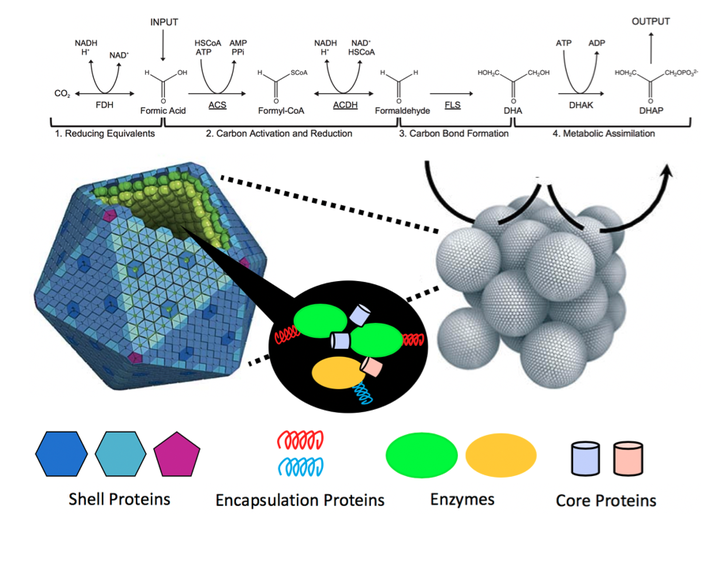Catalytic Bionanoreactors
 Hierarchical view of bacterial microcompartment arrays for chemical conversion
Hierarchical view of bacterial microcompartment arrays for chemical conversionBacterial microcompartments (BMCs) are intracellular architectures that regulate metabolic activity, such as carbon fixation, by promoting the spatial localization of both enzymes and molecular substrates. We study the governing principles of BMCs that dictate stoichiometric control of protein shell units, selective permeation of molecular substrates (e.g., reactants), and selective recruitment of cargo (e.g., enzymes). These insights will aid synthetic biology efforts to design catalytic bioreactors with precise selectivity, e.g., for efficient biochemical conversion or prolonged activity of enzymatic therapies.
Above figure is partially adapted from Uchida et al. ACS Nano (2018) and Siegel et al. PNAS (2015).